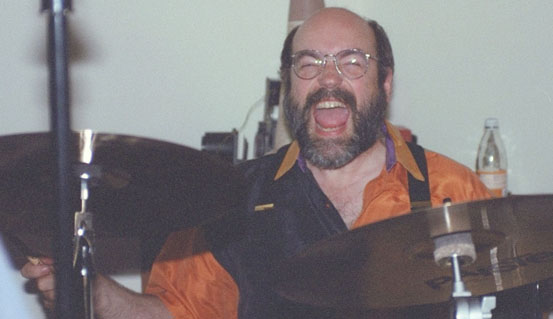-
Signals - 2018/4
End of week notes and 3 (approx) interesting things, new or old, found (approx) this week.
... read more
-
Signals - 2018/3
I’m figuring out what this blog is and should be. From its original intention it was meant to be “a place where to put scattered thoughts or notes about half-backed experiments not worth of making a whole project or a whole article”. It has been like that sometimes, sometimes it hasn’t. What surely wasn’t, is consistent. The goal is to make it into a habit, so here I am again. At week 3 of this new course, my plan is to use it also for week-notes, in the sense of Matt Webb (Matt Webb’s Interconnected was actually the main source of inspiration when I started this, it all comes together… ). So, without further ado, let’s get started.
... read more
-
Signals - 2018/2
3 (approx) interesting projects, new or old, found (approx) this week.
... read more
-
Signals - 2018/1
3 (approx) interesting projects, new or old, found (approx) this week.
... read more
-
A 2018 review of Mark Wieser's 1993 technological metaphors review

... read more
-
Magic
“magic is about psychology and salesmanship, and I believe a dangerous model for good design and productive technology. “
Fast forward to our days, and “magic” is still a common resource that companies use when promoting and popularising their technologies. Supernatural is obviously the oldest way to talk about complex thing and also its use in technology was nothing new even in 1993.
Tobias Revell does some great work on the topic. He gives an historical perspective on how every mayor technological advancement inevitably overflow into supernatural, and he also evocatively reminds us of the risks involved in dealing with “forces” we cannot control: “when magic goes wrong, the narrative of magic can quickly turn to horror”, in other words: be honest to your users, or they’ll run away with fear from your product.
-
Virtual Reality
It was the new big thing then. Wired’s Kevin Kelly, went to Jaron Lanier’s lab to get his mind blown at Jaron’s virtual realities; the Lawnmower Man film made the concept popular for the general public; and tons of tech companies were jumping on the VR bandwagon. After that we had a brief winter, and again a popularity boost, peaked in 2014 with the acquisition of Oculus Rift by Facebook for $2bn. According to the usual Gartner, Virtual Reality is now just surfing up the wave of disillusionment. The technology is there, the lag problems that hindered its development in the past have been solved and the overall quality is incrementally improving. There are some specific fields where it is gradually finding applications - such as entertainment and 3D visualisation for architecture and product design - and my humble guess is that Virtual Reality has reached a plateau, and from now on interest and funds will migrate more and more towards its younger sibling: Augmented Reality.
-
Voice Input
About this technology Wieser argues: “when I can send email to my computer and have it DWIM the answer, then I’ll start to believe in voice computers for limited applications.”, where DWIM is an acronym for “Do What I Mean”. Here’s is the only case among the other metaphors reported by Wieser where our current perception of the technology has significantly changed since 1993.
Because in 2018 we are able to speak commands to a computer using natural language. And in fact millions of Echo, Google Home or HomePod are in people’s houses around the world are doing it all the time.
And also when he adds that “most of my life I am with other people, and I want to talk (or listen) to them, not to my computer”, he has in mind the Star Trek scenario of a “work” environment in which people are continuously executing tasks with computers using voice commands.
On the other hand, I think, the way we are using connected speaker at the moment - as hands-free controller for music, lights or other appliances, and as a search engine for weather and other kind of generic information - is not too far from the idea of calm tech that Wieser had envisioned. A tool that don’t ask for our constant attention but is available to help us with small, humble home tasks.
👋 Mark.
PS - Image is Mark Wieser playing drums with his band Severe Tire Damage and it’s taken from the band page here.
-->